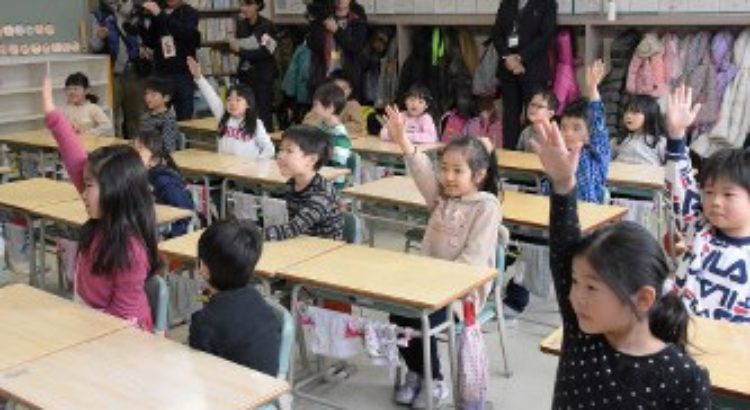Asia/ Japan/ 07.01.2018/ Source: mainichi.jp.
It is unknown if as many as 16,000 children of foreign nationality across Japan are attending elementary or junior high schools, which are compulsory for Japanese children, a Mainichi Shimbun survey has found.
This number makes up for at least some 20 percent of all children of foreign nationalities who have their residency registered with local governments and are aged 6 to 14. Some may have already returned to their home countries, but as no compulsory education requirements exist for foreign children in Japan, many could simply not be receiving education.
The survey covered 100 municipalities with higher numbers of foreign children of school age from September through November 2018, and asked how many such juvenile residents are attending public schools as of May 2018, the month after the beginning of the academic year in April. For municipalities that lacked data for that time, enrollment data around that month was requested. Using this method, answers were gathered from all 100 municipalities that were the target of the survey.
According to the survey results, those municipalities had some 77,500 non-Japanese children registered as residents. Of them, 57,013, or more than 73 percent, were attending public elementary and junior high schools. Another 3,977 were attending international or ethnic schools or private «free schools.»
Of the roughly 20 percent or so remaining, whose attendance status is unknown, appears to include those living in the municipality but not enrolled in a school, those whose whereabouts are unknown, children who moved to other parts of Japan or went home without their guardians going through the procedures to cancel their residency, or children who are attending private schools or international or ethic schools outside the local governments’ knowledge.
By municipality, the Kanagawa prefectural capital of Yokohama, south of Tokyo, with the highest number of registered foreign children, did not know if some 30 percent of the total, or roughly 1,400 kids, were going to school. The number was 1,307 or 30 percent in the western city of Osaka, which has the second largest population of registered children with foreign backgrounds. In Tokyo’s Edogawa Ward, the status of 1,030 children — or half of the total — was unknown.
Meanwhile, the central Japanese city of Hamamatsu, Shizuoka Prefecture, which was ranked fifth with 2,034 registered foreign children, had only two children whose educational status was not known to the municipal government. The city of Kawaguchi, Saitama Prefecture, north of Tokyo, which was ranked sixth, also had only six such children out of 1,680 registered. The two cities check in on all children registered as residents who are not attending public elementary or junior high schools.
Many municipalities that did not keep track of the status of foreign children of school age answered that they do not perform the checks because the children are not required to receive compulsory education under Japanese law, unlike their Japanese counterparts.
Associate professor Yoshimi Kojima of Aichi Shukutoku University, an expert on the schooling of foreign children in Japan, warned that some of the kids whose educational status is unknown are left out without a chance to go to school at all.
«The central government should no longer leave the matter up to local municipalities, and introduce national standards on the issue,» he said.
Source of the notice: https://mainichi.jp/english/articles/20190107/p2a/00m/0na/002000c







 Users Today : 1
Users Today : 1 Total Users : 35460264
Total Users : 35460264 Views Today : 1
Views Today : 1 Total views : 3418969
Total views : 3418969